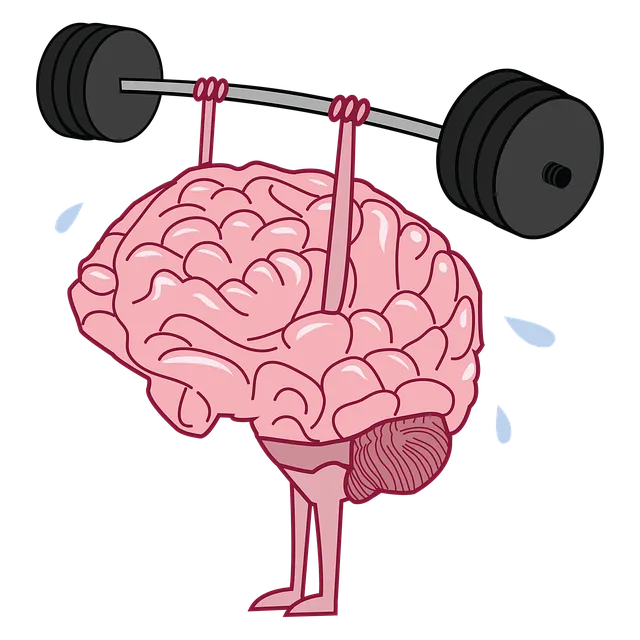Northglenn Kaiser Permanente's behavioral health services stand out for their patient-centric approach, utilizing risk assessment and management planning to deliver safe, personalized care. Their Mental Wellness Podcast Series and education programs empower individuals with self-awareness and emotional regulation skills, while training healthcare providers in cultural competency ensures trust and sensitive care. Continuous improvement through reviews drives a culture of learning, making mental health care compassionate, effective, and accessible as evidenced by positive Northglenn Kaiser Permanente behavioral health services reviews.
Risk assessment and harm minimization planning are essential components of providing effective behavioral health care. This article explores these critical aspects, offering a comprehensive guide for professionals seeking to enhance patient outcomes. We delve into the foundational principles of understanding risk assessment, highlighting successful approaches like the Northglenn Kaiser Permanente Behavioral Health Services model. Key components of a robust harm minimization plan are outlined, emphasizing continuous evaluation and improvement within behavioral healthcare services, as evidenced by Northglenn Kaiser Permanente behavioral health services reviews.
- Understanding Risk Assessment: A Foundation for Harm Minimization
- The Northglenn Kaiser Permanente Behavioral Health Services Approach
- Key Components of a Comprehensive Harm Minimization Plan
- Continuous Evaluation and Improvement in Behavioral Health Care
Understanding Risk Assessment: A Foundation for Harm Minimization

Risk assessment is a critical step in harm minimization planning, especially within behavioral health services like those offered by Northglenn Kaiser Permanente. It involves meticulously evaluating potential risks and their likelihood to occur, enabling professionals to implement targeted strategies for mitigation. This proactive approach ensures that individuals seeking support through behavioral health services receive a tailored and safe environment conducive to recovery and well-being.
The foundation of effective risk assessment lies in fostering self-awareness exercises and emotional regulation skills. The Mental Wellness Podcast Series Production, for instance, can be a valuable tool to enhance these aspects. By promoting understanding and management of one’s emotions, these exercises empower individuals to navigate challenging situations more effectively. This, in turn, contributes to minimizing potential harms and fostering a positive trajectory towards mental wellness, as reviewed by Northglenn Kaiser Permanente behavioral health services.
The Northglenn Kaiser Permanente Behavioral Health Services Approach

The Northglenn Kaiser Permanente Behavioral Health Services is renowned for its comprehensive and patient-centric approach to mental health care. Their reviews consistently highlight a strong focus on harm minimization, with an emphasis on proactive Risk Management Planning for Mental Health Professionals. This involves tailored interventions designed to support both patients and practitioners in navigating challenging situations. The services offered are integrated into the community, fostering a collaborative environment that goes beyond traditional therapy settings.
Their Mental Health Education Programs Design is meticulously crafted to empower individuals with strategies for managing stress and anxiety relief. By combining evidence-based practices with innovative therapeutic techniques, Northglenn Kaiser Permanente ensures a holistic approach that addresses the unique needs of each patient. This commitment to education and support extends to professionals as well, promoting a culture of resilience within the mental health community.
Key Components of a Comprehensive Harm Minimization Plan

A comprehensive harm minimization plan, as offered by Northglenn Kaiser Permanente behavioral health services reviews, should encompass several key components to effectively mitigate risks and promote well-being. One such vital element is Cultural Competency Training for healthcare providers. This training equips professionals with the skills to understand and address the unique needs of diverse patient populations, ensuring culturally sensitive care that fosters trust and open communication. By integrating this aspect into their practices, behavioral health services can better serve communities with varied backgrounds and experiences.
Additionally, incorporating strategies like Depression Prevention and Mental Wellness Journaling Exercise Guidance within harm minimization plans demonstrates a holistic approach to patient care. Depression prevention initiatives target early interventions and risk factors, while mental wellness journaling exercises empower individuals to track their emotional well-being, identify triggers, and develop coping mechanisms. These practices not only promote resilience but also encourage proactive engagement in one’s mental health, as emphasized in behavioral health services reviews of Northglenn Kaiser Permanente.
Continuous Evaluation and Improvement in Behavioral Health Care

At Northglenn Kaiser Permanente behavioral health services reviews consistently highlight the importance of continuous evaluation and improvement. This ongoing process involves regularly assessing the effectiveness of mental health education programs, compassion cultivation practices, and emotional healing processes implemented within the healthcare system. By doing so, they ensure that these services remain aligned with best practices and meet the evolving needs of their patients.
Through this dynamic approach, Northglenn Kaiser Permanente not only enhances patient outcomes but also fosters a culture of learning and adaptation. The integration of feedback from both service recipients and healthcare professionals allows for iterative improvements in program design, ensuring that mental health care remains compassionate, effective, and accessible to all who need it.
Risk assessment and harm minimization planning are essential components of providing effective behavioral health care, as evidenced by the successful strategies employed by Northglenn Kaiser Permanente Behavioral Health Services. By understanding risk assessment as a foundational step and implementing comprehensive harm minimization plans, healthcare providers can ensure patient safety and improve outcomes. Continuous evaluation and adaptation based on these reviews are key to revolutionizing behavioral health care, fostering a more secure environment for all folks seeking support. The insights gained from Northglenn Kaiser Permanente behavioral health services reviews underscore the importance of these practices in today’s digital era.


